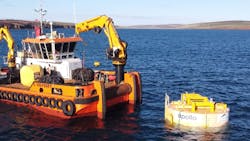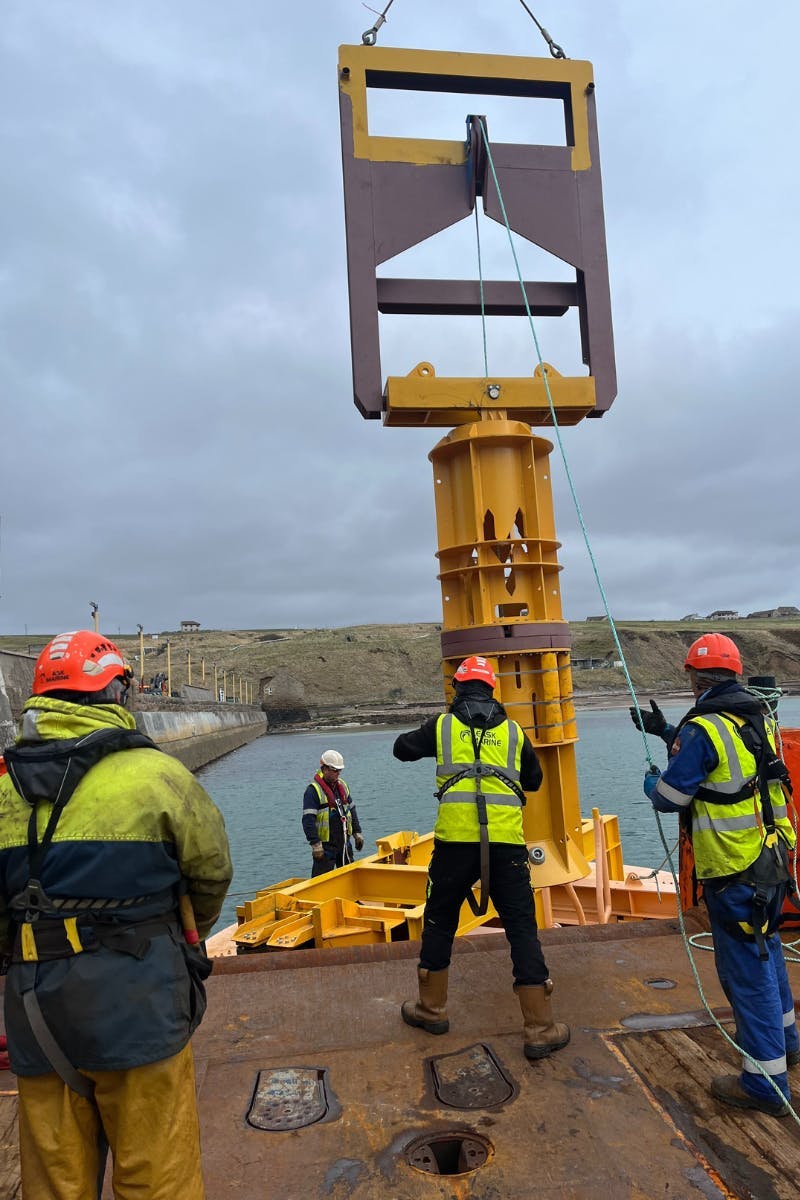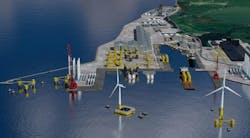Floating offshore wind connection system proven in trials
Apollo says trials of the PALM Quick Connection System (QCS) for floating offshore wind have been successful.
The program in Orkney, northern Scotland, ran from the end of March to the end of May, and it was designed to demonstrate the capabilities of the system to withstand real-sea conditions.
The QCS, developed under the Wave Energy Scotland Quick Connection Systems project, is designed to improve hookup and disconnection of cables and/or moorings for floating offshore renewable energy devices.
It is said to lower operational costs through enabling quick connections via the winching action of a conventional tow tug, with no need to tow devices to port for maintenance. This can be costly because of the required marine spread and lost power generation time.
The system is also said to allow connection and disconnection in higher sea states and removes the need for connections to be performed on deck.
PALM QCS is a mechanical system that can also incorporate electrical wet mate connectors. During the recent trials in Orkney, the system withstood Storm Kathleen and proved its capabilities during multiple connect and disconnect operations.
Wind turbines study
Earlier this month, Apollo and partners Global Energy Group and the Offshore Renewable Energy (ORE) Catapult’s Floating Offshore Wind Centre of Excellence released a study on the Tow to Port (T2P) operations for floating offshore wind turbines (FOWTs).
Conducted from November 2023 to March 2024, the study addresses the operational challenges of transporting FOWTs to port for major maintenance. The study predicts that between 10 to 30 turbines may require T2P annually from 2035 to 2040, based on a review of bottom-fixed turbine failure data. This could make T2P costs more significant than offshore installation and routine O&M costs combined, according to the Apollo news release.
The company said the findings of this study will help developers and the supply chain to inform their project financial planning and floating array infrastructure design.


